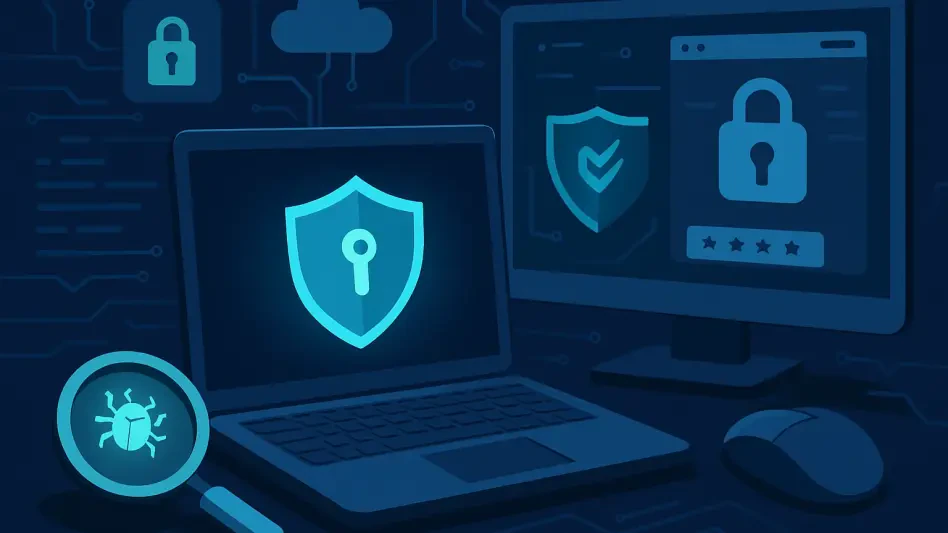In an era where cybersecurity threats evolve at an unprecedented pace, the latest release of a leading penetration testing platform has introduced a game-changing tool that promises to redefine how security professionals approach their craft. This update brings artificial intelligence directly into the terminal, offering a seamless blend of automation and human expertise. Designed to cater to a wide audience—from seasoned red team practitioners to curious students and researchers—this innovation aligns with the ethos of making advanced security tools accessible to all. The integration of AI into everyday workflows marks a significant milestone, potentially transforming the landscape of offensive security by reducing manual effort and enhancing precision in identifying vulnerabilities.
Embracing AI in Cybersecurity with Gemini CLI
The introduction of the Gemini Command-Line Interface (CLI) in this latest release represents a bold step forward in merging artificial intelligence with penetration testing. This tool, embedded directly into the terminal environment, allows users to interact with an AI assistant without the need for external interfaces or additional software. By focusing on accessibility, it ensures that whether someone is conducting complex security assessments or learning the basics of cybersecurity, the power of AI is just a command away. This integration not only streamlines workflows but also democratizes advanced technology for a diverse user base, aligning with the platform’s mission of inclusivity.
Beyond accessibility, Gemini CLI stands out by providing a unified platform for critical tasks such as reconnaissance, enumeration, and vulnerability scanning. Security professionals can now leverage AI to handle repetitive processes, receiving actionable insights and remediation guidance directly from their command prompt. This shift reduces the dependency on multiple disjointed tools and interfaces, creating a more cohesive experience. As a result, the focus can shift from mundane operations to strategic decision-making, enhancing overall productivity in security engagements.
Understanding the Core of Kali Linux
Renowned for its robust capabilities, Kali Linux remains a cornerstone for penetration testing and security auditing, offering compatibility across various hardware platforms. This flexibility makes it an indispensable asset for cybersecurity experts aiming to evaluate and fortify system defenses. Its reputation as a preferred tool stems from a comprehensive suite of functionalities tailored to meet the rigorous demands of identifying system weaknesses and ensuring robust security postures in diverse environments.
The platform excels in multiple domains, including penetration testing to uncover vulnerabilities in systems and networks, and security auditing to assess overall security health. Additionally, it supports digital forensics for investigating cyber incidents and gathering evidence, as well as reverse engineering to dissect software and hardware components. This multifaceted approach ensures that professionals have a versatile toolkit at their disposal, capable of addressing a wide array of cybersecurity challenges with precision and reliability.
Gemini CLI: Revolutionizing Terminal-Based Security
At the heart of this update lies the gemini-cli package, an open-source solution that integrates Google’s Gemini AI directly into the terminal. This allows security practitioners to engage with an AI assistant seamlessly from their command line, eliminating the need for separate graphical interfaces or custom scripts. The tool serves as a central hub for various security tasks, offering a streamlined approach to complex operations that traditionally require significant manual intervention.
The functionality of Gemini CLI extends to providing real-time assistance for reconnaissance, vulnerability scanning, and even suggesting remediation steps. By embedding such capabilities into the terminal, it ensures that users can maintain focus on their primary workspace without disruption. This innovation not only saves time but also enhances the accuracy of security assessments by leveraging AI to interpret data and propose actionable solutions, marking a significant advancement in how terminal-based tools are utilized.
Redefining Penetration Testing with AI Orchestration
Traditional penetration testing often involves piecing together outputs from multiple specialized tools like Nmap, Nikto, and Burp, requiring custom scripts and manual oversight that can be both time-intensive and prone to errors. This conventional method demands a high level of expertise to manage the intricate process of filtering data and making informed decisions based on disparate results, often leading to inefficiencies, especially in large-scale assessments.
Gemini CLI changes this dynamic by acting as an AI-driven orchestrator that autonomously plans and executes sequences of tasks. It adapts to real-time feedback and provides recommendations for subsequent actions, effectively handling repetitive and structured operations. This allows human experts to concentrate on higher-level strategic thinking and risk analysis, ensuring that their skills are utilized where they matter most, while the AI manages the groundwork with precision and speed.
Automation and Adaptability in Action
One of the standout features of Gemini CLI is its ability to process natural language inputs, enabling users to issue detailed instructions effortlessly. For instance, a command like “Scan host 10.0.0.5 for open ports, identify running services, check for known web vulnerabilities, and generate a JSON report” triggers a series of automated actions. This user-friendly approach simplifies complex workflows, making advanced security testing more approachable for users at all skill levels.
Behind the scenes, the AI executes a structured sequence: initiating scans with tools like Nmap to detect open ports, performing service fingerprinting, running targeted vulnerability checks for issues like SQL injection or XSS, compiling results into organized reports, and suggesting next steps such as privilege escalation. By optimizing task dependencies and allowing user overrides, it minimizes redundant actions and adjusts scan depth dynamically, ensuring efficiency and adaptability in every operation.
Balancing Control with Operational Modes
To maintain a balance between automation and user oversight, Gemini CLI offers distinct operating modes tailored to different needs. Interactive mode ensures that the AI proposes actions and waits for explicit user approval before proceeding, providing a cautious approach for sensitive tasks. Alternatively, the “YOLO” mode automatically accepts all suggestions for a more aggressive, hands-off operation, while the approval/auto-edit mode offers granular control by auto-approving minor changes but prompting for high-risk actions.
These modes are complemented by built-in safety mechanisms that keep the human operator in control, preventing the AI from running unchecked. Such safeguards are crucial in maintaining trust and ensuring that automation does not compromise the integrity of security assessments. By allowing customization of safety constraints, Gemini CLI ensures that users can tailor the level of intervention to match the specific requirements of their engagement, fostering a secure and controlled environment.
Real-World Applications and Efficiency Gains
Gemini CLI proves invaluable in automating checks for common vulnerabilities listed in the OWASP Top 10, such as injection flaws and cross-site scripting (XSS). With simple natural language prompts like “test for SQL injection on this endpoint,” users can expedite the initial phases of web application assessments. The AI intelligently coordinates existing tools to interpret responses and adjust follow-up actions, significantly reducing the time spent on routine checks and enhancing the focus on critical findings.
In larger network environments or multi-tenant setups, the tool excels at handling repetitive tasks like reconnaissance and audits across numerous endpoints. This scalability ensures consistency and repeatability, crucial for maintaining thorough security coverage. By automating baseline scans and tailored inspections, Gemini CLI enables faster assessments without sacrificing accuracy, making it an essential asset for organizations managing extensive digital infrastructures.
Installation and Technical Insights
Setting up Gemini CLI on Kali Linux is straightforward, requiring minimal effort for users familiar with the platform. The process begins with updating the system using sudo apt update, followed by installing the package with sudo apt install gemini-cli. This simplicity ensures that even those new to the environment can quickly integrate the tool into their workflows, minimizing downtime and accelerating deployment in active security projects.
The package itself is lightweight, occupying approximately 12.04 MB of space, and relies on Node.js along with necessary runtime environments for the Gemini AI interface. Key commands include gemini [options] [command] and gemini mcp for managing servers, with options for model selection, interactive modes, full automation via the –yolo flag, checkpointing for rollbacks, debugging, and telemetry control. These features provide a robust framework for safe and efficient operation across varied use cases.
Weighing Benefits Against Potential Risks
Gemini CLI offers significant advantages, including enhanced speed and productivity by automating complex workflows, thereby reducing manual overhead. Its consistency in orchestrating tools minimizes human errors, while accessibility through natural language lowers the entry barrier for novice testers. Additionally, scalability allows for parallel assessments across multiple targets, making it a powerful tool for large-scale security operations with minimal coordination effort.
However, certain risks must be acknowledged. Over-reliance on AI suggestions without validation can lead to oversight, and limitations in training data may result in false positives or missed edge cases. Past security flaws in earlier versions of similar tools highlight the importance of regular updates. Privacy concerns related to telemetry data transmission necessitate careful auditing, and ethical boundaries must be respected to prevent misuse, ensuring strict adherence to scope and consent in all engagements.
Looking Ahead: AI’s Role in Cybersecurity Evolution
The integration of Gemini CLI signals a broader shift in cybersecurity tooling, moving toward intelligent systems that embed AI directly into standard platforms. This trend suggests a future where security suites are not merely collections of standalone utilities but cohesive environments driven by smart logic. Such advancements could redefine how red and blue teams operate, enhancing their ability to respond to threats with unprecedented efficiency.
Professionals who adapt to these AI-augmented workflows are likely to gain a competitive edge over those relying solely on traditional methods. As AI orchestration becomes a standard component of security operations, maintaining human oversight and expertise will remain paramount. The balance between automation and critical judgment will shape the effectiveness of these tools, ensuring that technology serves as a partner rather than a replacement in the ongoing battle against cyber threats.
Accessing the Latest Kali Linux Release
For those eager to explore the capabilities of Gemini CLI, the latest version of Kali Linux is available for download from the official website. This ensures access to the most current tools and updates, providing a comprehensive platform for security testing. New users can install the system afresh to experience the full suite of features tailored for modern cybersecurity challenges.
Existing users with prior installations can seamlessly update their systems using standard update commands. This approach minimizes disruption and ensures that all enhancements, including Gemini CLI, are integrated into current setups. By keeping systems up to date, security professionals can leverage the latest advancements to maintain robust defenses against evolving threats, reinforcing the platform’s role as a leader in the field.








